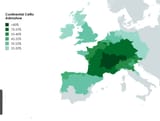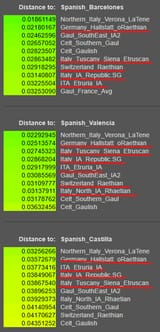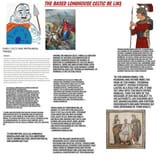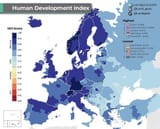>>17750213
The central issue regarding why there is vagueness and uncertainty has to do with what I would call "linguistic dark ages". We can reconstruct English through a few stages, such as contemporary, middle, and old English, but there is no such luxury for languages without written records.
A Proto language for a series of attested languages 1, 2, ... n gives us the original language held in common between these descendants at the latest stage before their breakup. This stage reflects various sound changes before the attested period that can be reversed and unified into a coherent proto language.
We have Proto-Germanic, but between Proto-Germanic and PIE there are no identifiable discreet stages that can be reconstructed with the comparative method (because there's nothing to compare with). The continuum between PGmc and PIE is called Pre-Germanic. All that is known about Pre-Gmc is sound change x is followed by sound change y, but there are no discreet language stages reconstructible. If we put PGmc at 500BC - 200AD and PIE at 4500-2500BC, then the Pre-Gmc dark ages must have been a long time.
Similarly, the dark ages of Pre-Celtic are vast. They are only illuminated a little by the Proto-Italo-Celtic stage.





